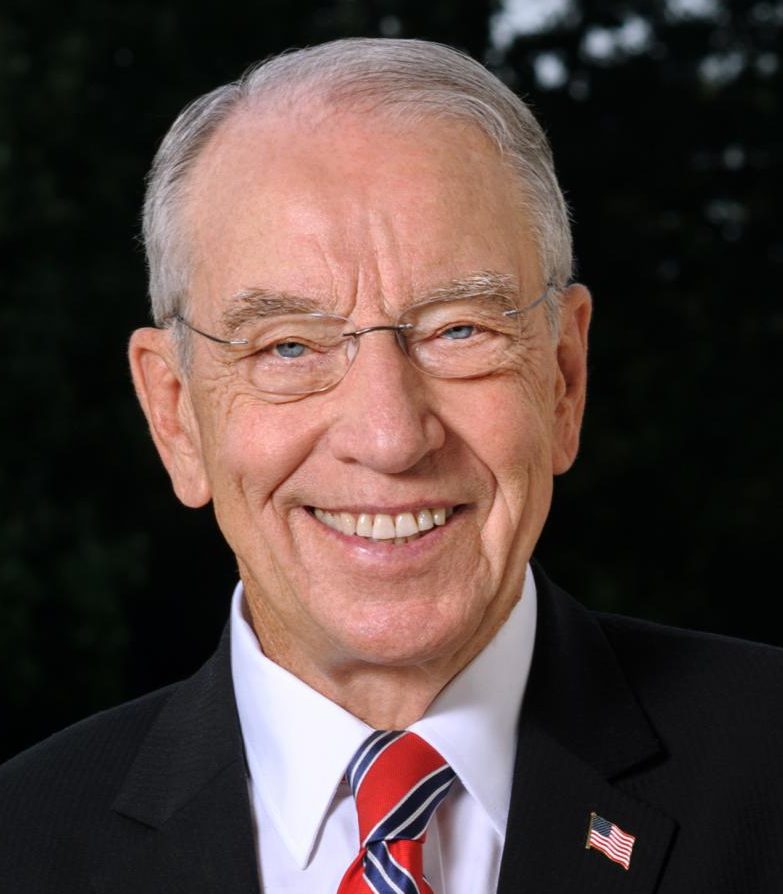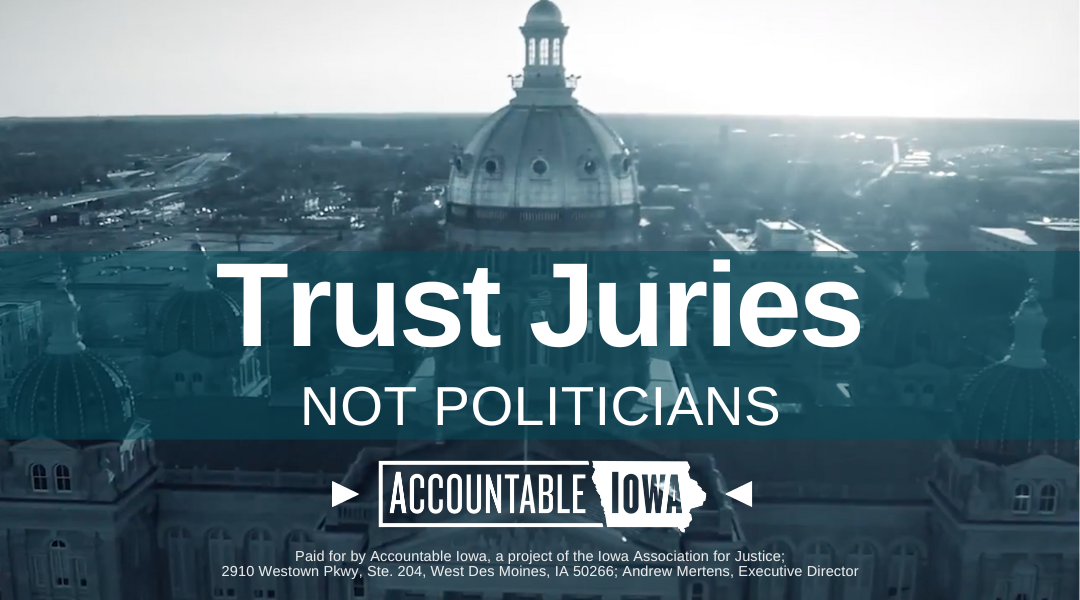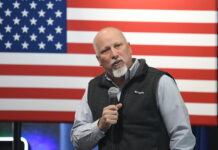This week, I scheduled a dozen county meetings in keeping with my annual tour across the state to keep in touch with Iowans. Like many events, my meetings are postponed. The coronavirus outbreak is disrupting society and everyday life.
From canceled sporting events to school closings, travel restrictions and nixed St. Patrick’s Day parades, Iowans are coping with a new normal to mitigate the transmission of the novel coronavirus. Although it seems inconceivable a virus would shutter Disneyland, March Madness, the Iowa Legislature and even houses of worship, closures will save lives.
According to the Centers for Disease Control and Prevention, four pandemics in the previous century emerged from novel influenza viruses, including the 1918 outbreak that killed 675,000 Americans. For most people, the CDC says this highly contagious coronavirus will cause mild symptoms. However, the risk from serious complications from the disease COVID-19 poses life-threatening harm for the elderly and those with underlying health conditions.
As the number of confirmed cases and mortality rates swell across the country, a coordinated response is mission critical. Over the weekend, Gov. Kim Reynolds confirmed Iowans have contracted the disease from community transmission. This delivers a reality check to our state. There’s clear and present urgency behind the effort to slow its transmission.
That’s why I’ve encouraged people to heed guidance from our public health professionals. Listen to the experts in epidemiology and infectious diseases when they say to regularly wash hands for at least 20 seconds, avoid touching the face and shaking hands, disinfect surfaces and practice social distancing. Lessons from the 1918 pandemic teach us that control efforts are essential for saving lives when no pharmaceutical treatment is yet available. The U.S. Department of Health and Human Services and its phalanx of federal agencies, from the CDC to the National Institutes of Health and the Food and Drug Administration have all hands on deck to respond to this 21st-century public health crisis. Every American must get on board.
Congress passed an initial emergency $8.3 billion response package to purchase medical supplies and equipment, accelerate development of therapeutics and vaccines, and send federal aid to state and local health agencies. President Trump on Friday declared a national emergency, freeing up to $50 billion and cutting red tape to give hospitals flexibility to serve patients.
This week, Congress is poised to deliver a second package to alleviate hardship on American families who miss work and wages stemming from the public health crisis. Specifically, the bipartisan bill would provide free testing for the virus, increase food assistance, extend unemployment insurance and ensure employees have access to employer paid sick and family leave by providing small- and medium-sized businesses a payroll tax credit to fully cover these costs.
As the United States works to protect the public health, the pandemic is infecting the economy, particularly the travel, hospitality and entertainment sectors. As chairman of the Senate Finance Committee, I’m developing additional fiscal measures for consideration to help inoculate small businesses and their workers from the fallout and address volatility in the stock markets amid shocks to global supply chains, effects on businesses of social distancing, and lowered consumer demand. As always, I’m keeping watch over federal agencies and their efforts to mitigate risk for nursing home residents, veterans and inmates.
Don’t forget, the 2020 Census is underway. The federal government’s response to the coronavirus includes billions of dollars in federal aid that will be distributed based on census data. Census forms will be mailed to every household by March 20. For the first time, Americans may choose to complete the survey online, by phone or mail. The decennial head count provides vital data for federal spending formulas that Iowa communities count on to pay for public services and public works, such as highways and hospitals, food stamps, Head Start, Medicaid and more.
Lessons from the 2020 pandemic underscore my work at the policymaking tables on behalf of Iowans, including:
- Broadband infrastructure is more important than ever. From telemedicine to telecommuting and online school instruction, rural America can’t be left behind. I applaud the Federal Communications Commission and the private sector who are working together to ensure Americans don’t lose access to their internet service during the pandemic. In August, I participated in an event hosted by the Bipartisan Policy Center and UnityPoint in Des Moines about barriers to health care in our rural communities. Many Iowans travel long distances to reach a hospital or health clinic. Shortages of physicians and specialists in our rural communities further underscore the accessibility gap. Expanding telehealth services would help bridge the divide, improving patient outcomes and saving money. The emergency spending package Congress approved earlier this month paves the way for telehealth services to better serve patients and prevent exposing others to the virus.
- The coronavirus pandemic brings even more urgency to my bipartisan Prescription Drug Pricing Reduction Act I’ve co-authored with Sen. Ron Wyden of Oregon. When lifesaving vaccines and pharmaceutical treatments are prescribed to patients, they need to be affordable to be effective. Our bill caps out-of-pocket costs for senior citizens. The nonpartisan Congressional Budget Office updated its analysis and reported the bill would save taxpayers $95 billion, reduce out-of-pocket spending by $72 billion and reduce premiums by $1 billion.
As we navigate these uncertain times, embrace the pioneer spirit. Be governed by grit, sacrifice and fortitude to thrive and protect hearth and home. Iowans are of sturdy stock, civic-minded and good neighbors.
Nearly a century ago, in an address to the 42nd General Assembly, the son of a pioneer family who had served in the Statehouse and represented Iowa’s 3rd Congressional District shared a bit of wisdom that rings true today as Iowans are called to act in solidarity for the public good. The farm boy from Bremer County, Burton E. Sweet, praised the “great inheritance” transmitted from our predecessors who embraced a governing philosophy “for the benefit of one is the benefit of all, and the neglect of one is the neglect of all.”
The closures and cancelations may seem extreme or excessive to many Iowans. Consider this a test of social responsibility and civic duty. Let’s pass with flying colors, especially for the sake of loved ones, neighbors and co-workers who are at greater risk of serious complications and for those on the front lines who deliver life-saving health care. Although this pandemic may worsen before times get better, I have every confidence America’s best days are yet to come.
















